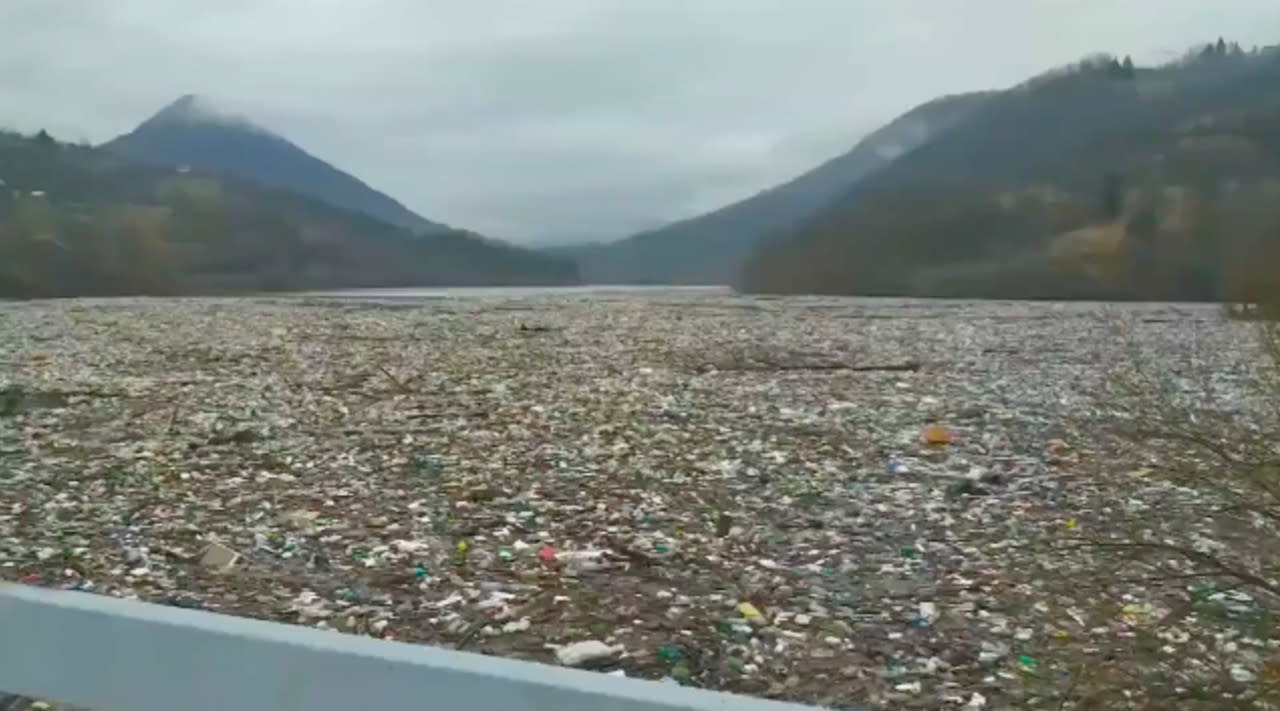
Although pollution is a ubiquitous issue that affects essentially every ecosystem on earth, the problem is not always visible to the naked eye. However, the footage of Potpecko Lake in Serbia depicts a shocking scene – several thousand cubic meters of plastic containers floating on top of the water.
The footage was first published online on January 4, 2021, and environmental activist Sinisa Lakovic says the extent of the plastic pollution is due to decades of garbage collection at ‘unhygienic landfills’, as reported by Reuters. Marko Karadzic, a local resident, described the situation to Reuters as an ecological disaster.
Several landfills are located upstream of the lake along the Lim River. Potpecko Lake is connected to the body of water used by the dam in the Višegrad hydroelectric plant, and officials are concerned that it could clog it with rubbish.
Serbian Environment Minister Irena Vujovic said a clean-up would begin soon and stated that several landfalls that had contributed to the pollution in Lake Potpecko had been invited to develop a solution that would have long-term benefits. .
AQUATIC POLLUTION, NOT JUST AN OCEAN PROBLEM
Images of ocean animals entangled by plastic pollution are the most common consequences many people think of when they consider how the waste we generate affects the ecosystems in the water. Since oceans cover more than 70 percent of the earth’s surface, it is understandable that the focus is on these marine ecosystems, but some experts believe that plastic pollution in freshwater lakes and rivers is a topic that is often neglected in research.

A disposable beer can in Eagle Lake, Mississippi, USA. Credit: Justin Wilkens via Unsplash
In a 2019 survey conducted by scientists Martín CM Blettler and Karl M. Wantzen, 171 published studies examined plastic entanglement of animals and found that more than 98 percent focused only on oceanic environments. Blettler and Wantzen said while the pollution of plastic in the ocean is a major concern, they stress the importance of the limited insight into freshwater pollution.
In freshwater environments, researchers have documented an increasing trend for plastic to become part of birds’ nests, which could reduce the survival rate of both parents and chicks. Microplastics are also consumed in fish in growing quantities leading to adverse effects. According to the researchers, the effects of plastic pollution on inland bodies of water are important to study because the waste dumped into lakes and rivers eventually moves to the oceans.
With Reuters files
